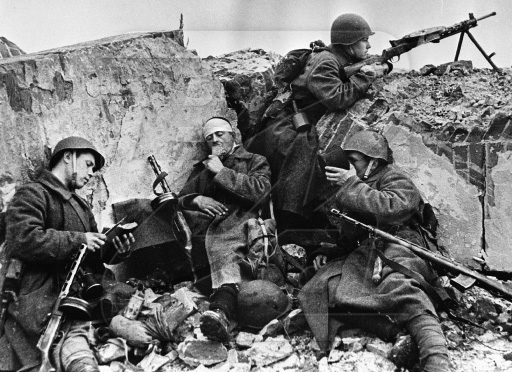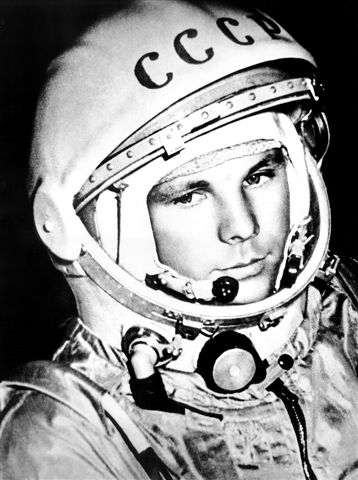World War 2, Cold War, The Fall of Communism

Hitler declared the war on Russia on June 22nd 1941. During the first phase of the war Germany army defeated Red Army, blocked St.Petersburg and came as close as 30km to Moscow.
Germans only in 1943 at the Battle for Stalingrad and started its victorious reconquest of the Soviet Union and Eastern Europe which was finished on May 9th 1945.
USSR lost about 25 million people in that war, country was ruined but USSR gained the status of superpower and one of the leading country of the world.
Soon after the war former allies became enemies. USSR and USA had different point of view on the European future.
The new War could start any minute and the world lived under that threat till the 80s.
Space and arms race were some of the most important aspects of the "cold war".
At the expense of the country's population, USSR sent the first man in space in 1961, created state-of-the-art weapons in the 70s, and was rapidly expanding its military and space budgets right into the 80s.
At the same time, many industries, as well as the social sphere were under-developed and it all came to toll in towards the end of 80s, when the Soviet economy just couldn't cope with imbalance any longer.

Soviet leaders which followed Stalin followed his ideas – they developed the army and the industry and sciences whish served army needs.
They regulated people’s day to day life with ideology and still proclaimed Communism as the nearest and desirable future of USSR.
However they were different in a way.
Khrushchev accepted that Stalin’s regime was too cruel and tried to make everyday life of people better, Brezhnev was too conservative and inefficient, Andropov tried to make Russians effective workers but failed.
Finally Gorbachov went in charge. He had an idea that the country must be reformed.
He started with the policy of glasnost’– free public access to information and perestroika - implementing democratic principles into the state system.
But instead of the reforming USSR this lead to the collapse of the state. When people found out what is going on in USSR they just gave it up and in the 1991 the country ceased to exist.
Instead of USSR 15 independent states were proclaimed, Russian Federation became the largest successor of the former Union and was headed by the president Boris Eltsin.



